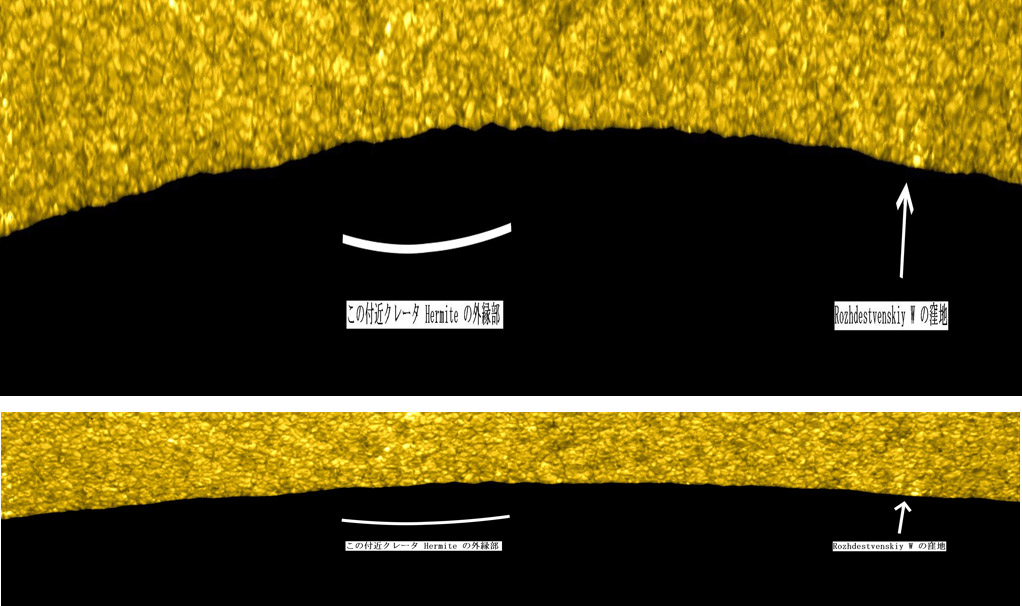image from Hinode Solar Optical Telescope.
In the 1950s and early 60s Chester Watts of the US Naval Observatory used a series of telescopic images to create 1800 maps of the topography of the lunar limb for all ranges of librations. Apparently this was done to make accurate predictions of the circumstances of solar eclipses, and it has been used also for predictions of star grazings. I am not aware if Watt’s charts have been applied to lunar science problems, I know that I used to look at them 35 years ago and didn’t see a way to use them. The image above is a more modern way to map the limb. It is a high resolution profile view of a partial eclipse of the Moon as seen by the Japanese Hinode solar observatory satellite. The bottom image is the true scale image and the top is one I used Photoshop to exaggerate the vertical dimension three times. This more clearly shows the variations of topography nearly exactly across the north pole. The limb shown skirts the edges of the two labelled craters, and its interesting that Rozhdestvenskiy still shows as a depression. The Hinode website shows the plot of this limb on a north polar map. I would guess that either the crater is plotted in the wrong position or that the trace of the limb is, for the image suggests that we are seeing a traverse more across the middle of the crater. Also notice that the deviations from a perfect circle through this limb have both small scale ups and downs, due to individual peaks, and a larger, almost bulge rise near Hermite. Hmm.
John McConnell
Technical Details:
I thank Larry Klaes for directing my attention to these remarkable images.
Related Links:
Larry also recommends this lunar transit as seen by the new Stereo satellite.
COMMENTS?
Click on this icon File:PostIcon.jpg at the upper right to post a comment.




